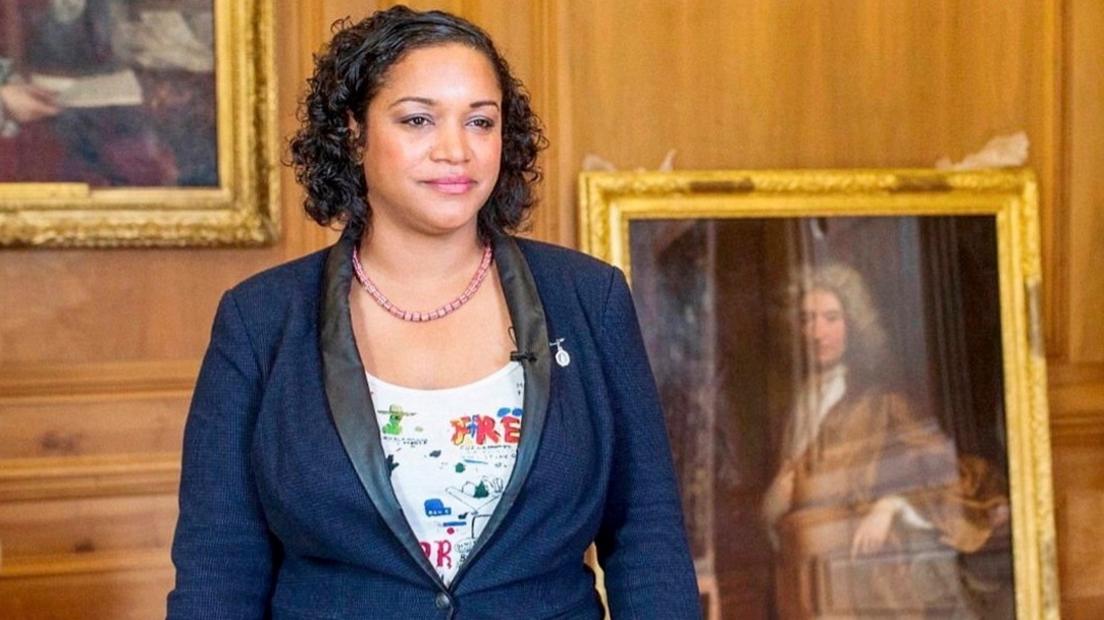Bristol council passes slave trade reparations motion
- Published
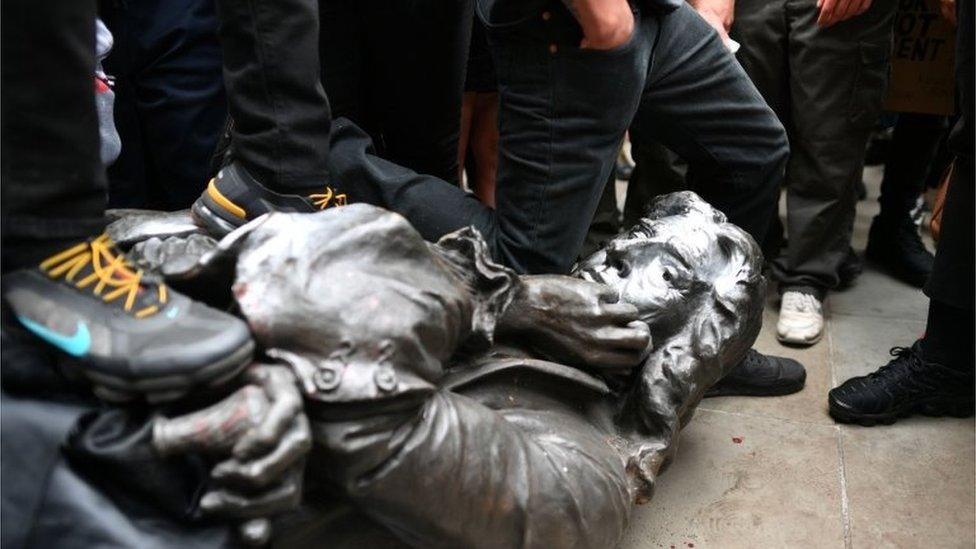
Some Bristol venues bearing Colston's name have been changed since the statue was toppled
Councillors have voted in favour of an "atonement and reparations" plan for Bristol's role in the transatlantic slave trade.
Bristol City Councillors voted 47 to 12 in favour of the motion and will now write to Parliament.
It will urge MPs to set up a cross-party group to work out how reparations could be delivered.
In June protesters in the city toppled a statue of the 17th Century slave trader Edward Colston.
Deputy mayor Asher Craig told a meeting of the full council the removal of the statue "was a symbolic demonstration of our city's complex relationship with race".
'Risks exacerbating' divisions
"It highlights the long shadows cast by slavery and racism in Bristol and how this shapes our city's discourse," she added.
But councillor Steve Smith told the meeting the Conservative group was "unable to support this motion".
He said: "We believe the motion risks exacerbating some divisions by promoting a binary view of the world when the reality is much more complicated."
Mr Smith said while the motion came "from a good place" and was done with "the very noblest of intentions" the risk remained.
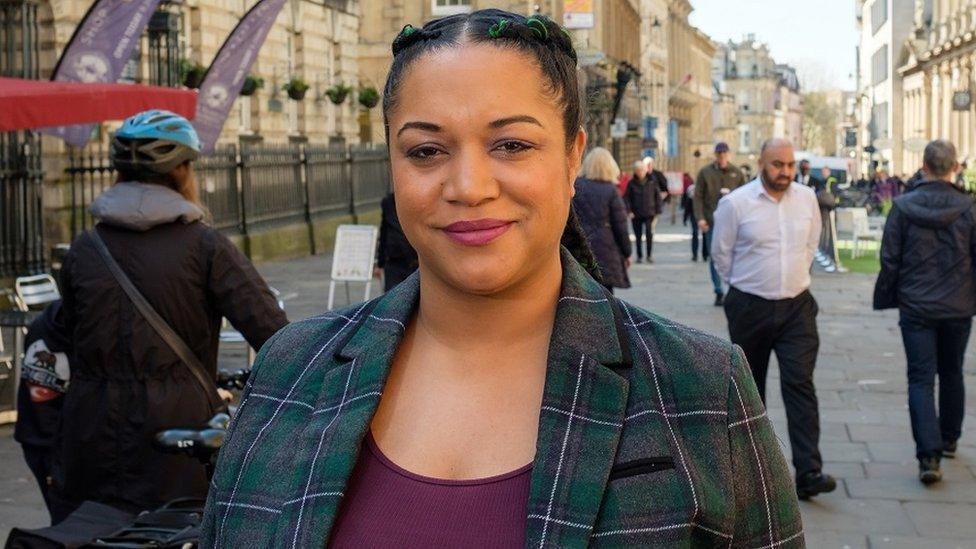
Cleo Lake's reparations motion asked for a "holistic" approach towards the issue
The motion passed included a request for the council to write to the Houses of Parliament urging it to set up an All-Party Parliamentary Commission of Inquiry to work on the scope of how reparations might be delivered.
The motion was brought by Green Party councillor Cleo Lake who said the city should now play a "leading role" in "calling for systemic change".
Ms Lake said: "Reparations is not a paycheque for the descendants of people who were enslaved, it is a process outlined by the UN which looks for holistic repair.
"This can include public apologies, social justice initiatives, education or cultural projects, commemorative ceremonies, affirmative action and much more."
Labour mayor Marvin Rees warned the conversation on race would be complex, but added: "The fact that there is complexity in it should not deter us from taking a first step down that path."
Related topics
- Published12 January 2021
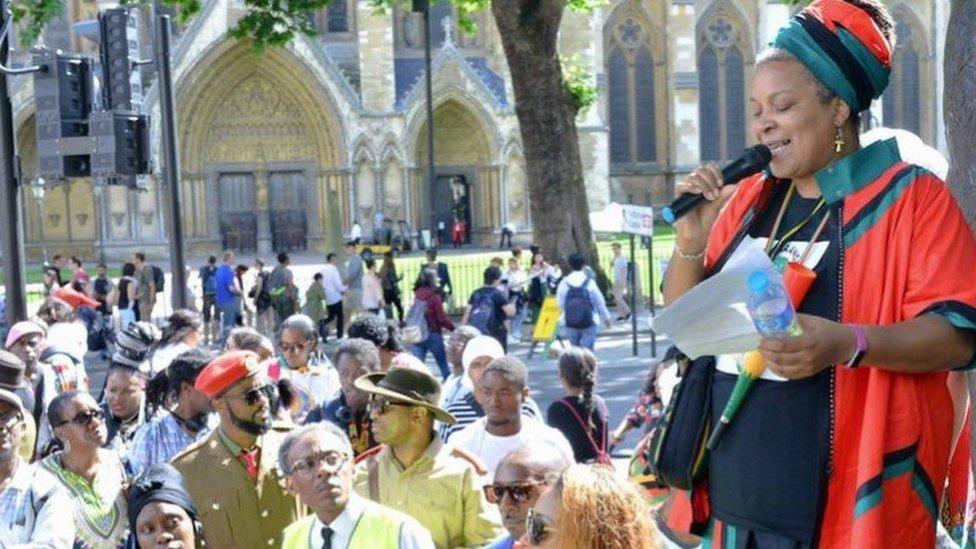
- Published9 September 2020
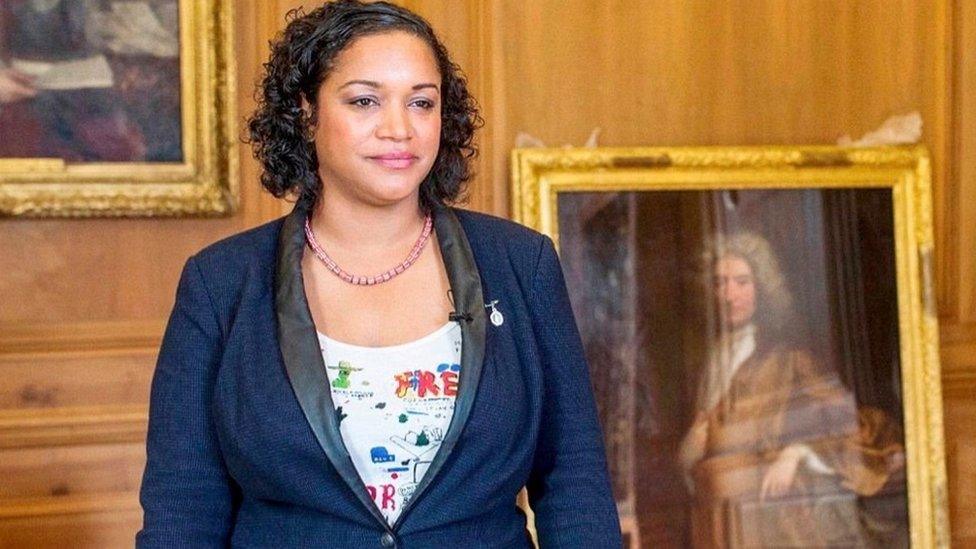
- Published9 July 2020
